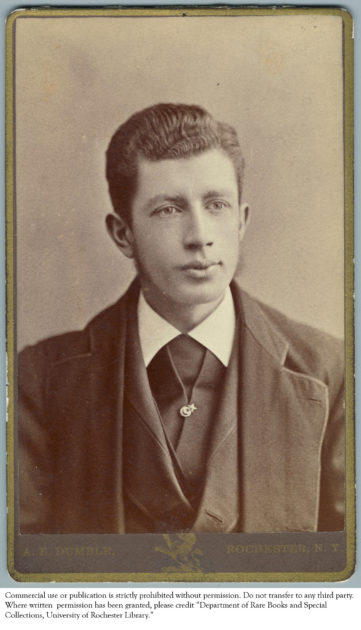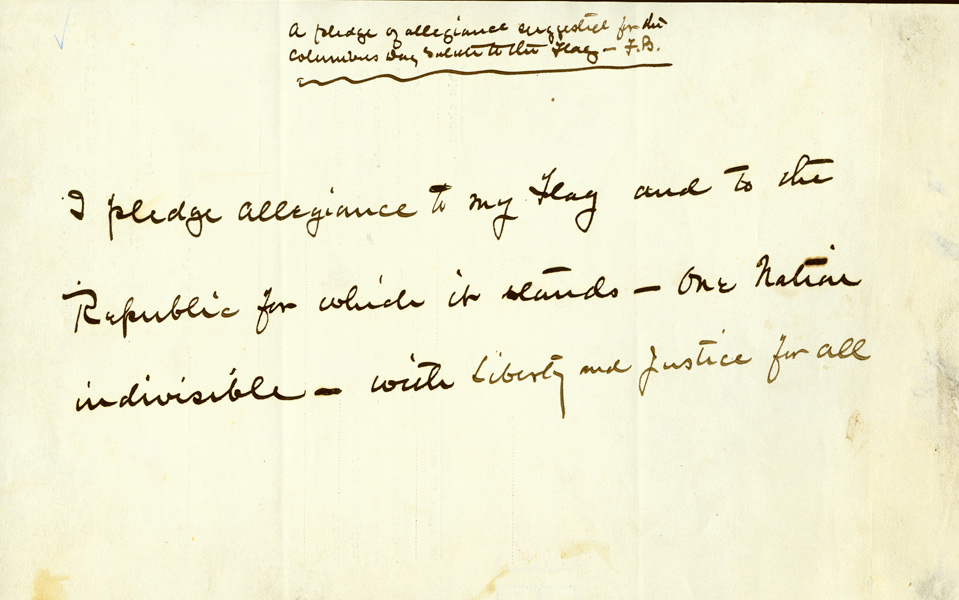 The words penned by a member of Rochester’s class of 1876 are still recited daily by schoolchildren all around the country.
The words penned by a member of Rochester’s class of 1876 are still recited daily by schoolchildren all around the country.
Francis Julius Bellamy (1855–1931) has been described as the University’s “most quoted alumnus” for composing “The Pledge of Allegiance to the Flag” in 1892.
At the time, Bellamy was employed by the Boston magazine The Youth’s Companion. As part of the celebrations marking the 400th anniversary of the voyage of Christopher Columbus to the western hemisphere, the magazine promoted the idea of a flag ceremony on Columbus Day in every school in America. Bellamy wrote the Pledge for students to recite as flags were raised over schoolhouses across the country.
Over the years additional words have been added to Bellamy’s original pledge.
Bellamy’s original version read, “I pledge allegiance to my Flag and to the Republic for which it stands—one Nation indivisible—with liberty and justice for all.”
In 1923, the first National Flag Conference voted to add “the flag of the United States of America” to ensure immigrant children understood to which nation they were pledging their allegiance. In 1942 the Supreme Court ruled in favor of members of the Jehovah’s Witnesses whose children refused to salute the flag because their religion forbids them to pay homage to symbols.
And in 1954 Congress added the phrase “under God,” setting the stage for numerous court battles over the years.

Bellamy, an ordained Baptist minister who left the clergy to pursue a career as a writer, editor, and advertising executive, died in 1931, well before the Pledge could find itself much of an issue in a court of law or in the courts of public and political opinion.
The Department of Rare Books, Special Collections, and Preservation houses the Francis Julius Bellamy papers, which include letters, programs, news clippings and other documents related to the Pledge and Bellamy’s life.



